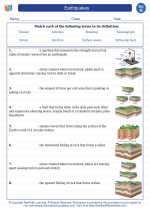Vitamin K
Vitamin K is a fat-soluble vitamin that plays a crucial role in blood clotting and bone metabolism. There are two main forms of vitamin K: K1 (phylloquinone) which is found in plants, and K2 (menaquinone) which is synthesized by bacteria in the gut and also found in some animal products.
Functions of Vitamin K
- Promotes blood clotting: Vitamin K is essential for the synthesis of several proteins involved in the blood clotting process, including prothrombin.
- Supports bone health: Vitamin K is involved in the regulation of calcium in bones and plays a role in bone mineralization and growth.
Sources of Vitamin K
Vitamin K1 is found in green leafy vegetables such as spinach, kale, and broccoli. Vitamin K2 is present in fermented foods, certain animal products, and is also synthesized by gut bacteria.
Deficiency and Toxicity
A deficiency in vitamin K can lead to excessive bleeding, easy bruising, and osteoporosis. Toxicity is rare but can interfere with anticoagulant medications.
Study Tips
When studying vitamin K, focus on understanding its role in blood clotting and bone metabolism. Make sure to differentiate between the two main forms of vitamin K and their sources. Practice identifying foods rich in vitamin K1 and K2, and understand the consequences of deficiency and toxicity.
[Vitamin K] Related Worksheets and Study Guides:
.◂Science Worksheets and Study Guides Eighth Grade. Earthquakes
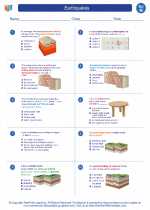
 Worksheet/Answer key
Worksheet/Answer key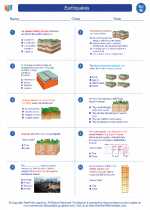
 Worksheet/Answer key
Worksheet/Answer key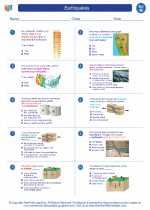
 Vocabulary/Answer key
Vocabulary/Answer key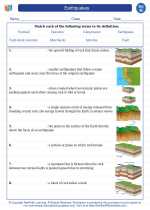
 Vocabulary/Answer key
Vocabulary/Answer key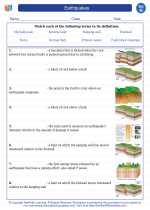
 Vocabulary/Answer key
Vocabulary/Answer key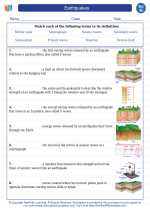
 Vocabulary/Answer key
Vocabulary/Answer key